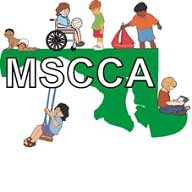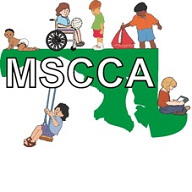MSCCA recently submitted an Op/Ed to the Baltimore Sun on Jan. 9, 2020. The Sun has agreed to run this article but we also wanted to share the article with our members and social media followers. The Kirwan legislation Senate Bill 1000 dropped at the end of last week. Numerous changes recommended by MSCCA were included in Kirwan, but there are still crucial issues we need to address this session. MSCCA is working with a coalition of partner associations on some amendments. We will need your voices as voters to reach legislators. MSCCA also has legislation based on feedback from our membership related to critical Workforce development and shortages so we have sponsored House Bill 1386 with champion Delegate Kelly and finalizing a cross bill filing in the Senate that will be assigned in Committee by champion Senator King soon.
Learn how you can be in the loop for the latest developments in Early Child Care Education legislation by visiting our MSCCA Alerts page.
Click to Find Your Legislator.
The Right Way to Meet Kirwan’s Universal Pre-K Goal
By Christina Peusch
The policy and funding formula recommendations are final and, after three years, the Kirwan Commission on Innovation and Excellence in Education has completed its work to reimagine Maryland’s education system. There are, however, problems with one of the Commission’s core tenets. While prekindergarten for low-income three-year olds and all four-year olds – commonly called universal pre-K – has broad support, including from the educators I represent, the Commission’s implementation plan for universal pre-K is not feasible and leaves too many unanswered questions.
First, it is entirely unrealistic to believe that public schools can immediately serve 70 percent of universal pre-K students in the inaugural year, as the Commission plans. In many counties, public-school pre-K programs do not exist. Every new classroom would be a complete startup requiring new specialized furniture, equipment, procedures for younger students, early childhood educators, and, in many cases, new buildings or renovated classrooms. We already live with teacher shortages and classroom overcrowding. Quickly building a new universal pre-K public school system, especially recruiting enough teachers and finding classroom space, is a major challenge.
Instead, we should leverage the existing, licensed, and highly qualified pre-K programs at community early learning centers. Today – right now – there already exist enough spaces for almost 60 percent of the approximately 30,000 students Kirwan projects for the first year. Each of these programs already meet the Commission’s stringent qualifications, as rated by the Maryland Department of Education.
That’s why the state should work cooperatively with existing early education centers to make universal pre-K a reality. There are two ways to implement universal pre-K, both of which enroll the same students in highly qualified pre-K programs. In one way, the state can expand current initiatives such as Maryland childcare subsidy program, the childcare tax credit, and the existing pre-K expansion grant. Increasing these will allow more students to attend existing community-based early learning programs affordably and achieve the same goals.
The other solution is to implement Kirwan’s recommendation, but require at least 50 percent of students attend pre-K at existing community early childhood programs. The Commission already envisions 30 percent of students will attend existing programs in the first year. Requiring at least 50 percent in the first year will cost less and not require public schools to vie for already scarce school construction funding to needlessly duplicate classrooms at existing highly qualified community pre-K programs. There are already too many urgent K-12 construction needs.
The second problem with Kirwan’s vision is the unintended consequence expanding public-school pre-K programs will have on infant and toddler care across Maryland. Childcare centers cannot remain in business caring for infants and toddlers alone; the staffing costs are too high. Many will close. For others, the only option is to raise prices resulting in only the wealthiest being able to afford vital infant and toddler care. This is one reason Washington D.C. leads the nation in infant care costs and New York City finds it hard to maintain affordable infant care.
Finally, Kirwan’s recommendations leave too many unanswered questions about how school systems will meet the developmental needs of pre-K students. Public schools are not required to follow the same staffing ratios as community early learning centers. Will there be more children per teacher in each class than in community childcare settings? Will public school programs have to adhere to all other stringent regulations community-based programs must follow? Are children this young socially and emotionally ready to eat in the cafeteria and ride the school bus, without seatbelts or bathrooms, alongside elementary school-aged children? What about nut-free schools and diaper changing?
Since universal pre-K is not funded at a full-day rate, are school systems prepared to provide before and after school care for working parents? Current public-school programs do not. If not, and some parents must reduce work hours, this could cost them as much as fulltime childcare. Kirwan envisions eligible families pay tuition to community providers and public schools on an income-based sliding scale to attend these pre-K programs. If available, will extended care costs be factored into this sliding scale?
Legislators can fix these problems during the 2020 Maryland General Assembly Session by either expanding existing childcare tax credits, childcare scholarships, and pre-K expansion grants to meet the pre-K vision, or requiring in law a 50-50 split between existing community early learning and new public schools. Both solutions save taxpayer funds to pay for other education priorities, lessen the impact on infant and toddler care, and provide a higher likelihood of success for universal pre-K in Maryland.
About the Author
Christina Peusch is the Executive Director of the Maryland State Child Care Association which represents 4,400 infant, toddler, and pre-kindergarten community providers who prepare more than 40,000 children for their educational journeys and provide families flexibility and choice when making childcare decisions. She can be reached at [email protected].


 and then
and then